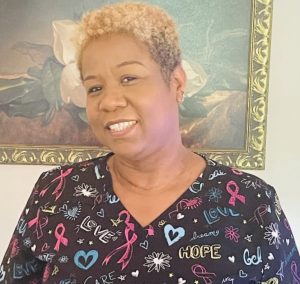Aging in Place Doesn’t Have to Mean Staying in Place
“Aging in place” means staying in the home we love with the assistance that keeps us healthy and safe. The right planning and the right help allow our loved ones to maintain their independence and provides family and friends with the peace of mind that their senior is safe and content. According to a study featured in The Gerontologist, “changes at home (such as removing obstacles or introducing mobility aids) can enhance independence.”
Part of feeling independent is having choices–the ability to choose where to live, where to go, and the assistance that enables one to enjoy their later years. Sometimes that choice means downsizing from the home a person has lived in for several decades. Some people will move across the country to spend time with their grandchildren. While others choose to stay in the same community or neighborhood and opt for apartment living or shared living space. In whatever setting your loved one calls home, they need to include a plan for staying mobile as much as personal circumstances and physical limitations allow.
According to the British Medical Journal Postgraduate Medical Journal, physical inactivity and the associated diseases that result lead to “a loss of muscle mass, a decline in balance ability, a reduction in muscle strength and endurance and a decline in cognitive performance, all of which impact on functional independence.” The World Health Organization estimates that 3.2 million deaths each year can be attributed to physical inactivity. Simply put, staying active will help your loved one live a longer, healthier, more rewarding life.
The American Academy of Family Physicians Foundation recommends at least 150 minutes of moderate-intensity aerobic activity, or 75 minutes of vigorous-intensity aerobic activity, and at least two days of muscle-strengthening activities per week for older adults.
Here are just some of the many benefits of keeping a body in motion:
- Improves balance, reducing fall risk
- Increases bone density
- Improves flexibility
- Decreases pain
- Maintains cognitive function
- Boosts the immune system
- Improves sleep
- Increases longevity
- Feels good!
Nothing beats a walk around the neighborhood, but the weather doesn’t have to stop a daily workout routine. We’ve put together a list of fun physical activities that will keep your senior loved one in motion:
- Chair sits – Here’s a fun video, led by a registered nurse, showing more ways than you could ever imagine to stay fit from your chair.
- Step-ups – No special equipment needed for these at-home exercises that will help you improve lower leg strength and cardiovascular capacity.
- Wall push-ups – Even if you have never done a push-up before, the physical therapist in this video gives instructions on safe ways to increase upper body strength.
- Soup can lifts – A whole gym in your kitchen? This instructor has tips for how slow movement with everyday objects can help build strength and balance.
- Walking in place – This mother/daughter team shows a low-impact way to get your heart rate up. Try this perfect activity to keep moving on those rainy days.
Avila Home Care is here to help in several ways. Our home companions enjoy taking walks with their clients and can be in the home to assist with simple movements. Supportive services can maintain a clutter-free zone in the home appropriate for daily exercises. And our transportation services can drive your loved one to offsite group activities and gyms. We recommend that you always check with your loved one’s physician before they start any exercise program.
We can provide care for your loved one in whatever setting they call home-whether in their house or apartment, an assisted living environment, a nursing home, or in the home of a friend or family member.
We’d love to meet you and find out more about your family’s needs. Call us today at 410-826-6100 for a free in-home assessment by one of Avila’s Registered Nurses.
Holiday Fire Safety for Seniors Aging in Place
The homecare providers at Avila Home Care suggest methods for ensuring that your home remains safe from fire damage during the holidays. The holiday season is a special time of year. Particularly for seniors whose families live far away, the holidays are a joyful occasion when everyone gets to spend time together, share stories and…
Kori Ragin is Avila’s Caregiver of the Month for November, 2024!
Congratulations to Kori Ragin, Avila’s Caregiver of the Month for November! Kori’s strong, trusting relationship with her long-term Avila client has made an incredible and meaningful impact on her client’s quality of life. Kori’s consistent presence and attention to detail ensures that her client receives the best possible care each day. We are so very…
Toute Sweet- Avila Caregiver Molly Hartsfield’s Tasty Treats!
Molly Hartsfield brings all the sweet love and care to her Avila clients just like she does when baking her delicious treats! From festively decorated chocolate-covered fruit, to scrumptious “pop-cakes” and dipped pretzels, Molly brings joy to all those with whom she shares her treats. It’s no wonder her clients adore her! “I’ve done things…



